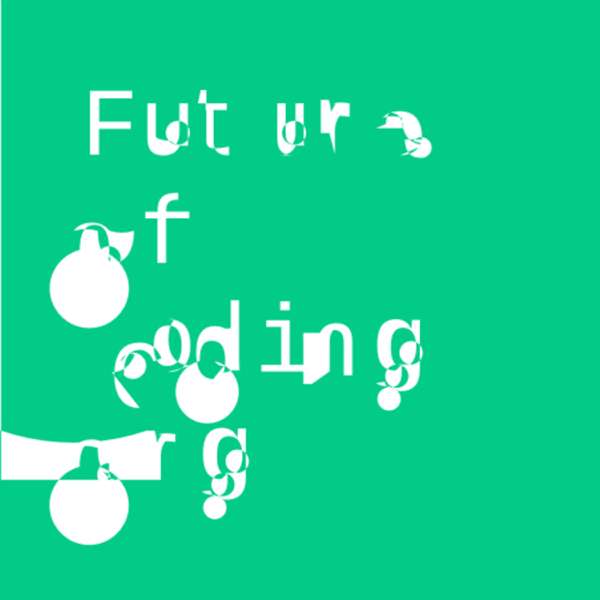Last month, John McWhorter and I participated in Heterodox Academy’s 2022 conference in Denver, Colorado. We spoke in front of an audience and discussed how to model constructive disagreement. But before that, we had a bit of a warm-up session with Zach Rausch, host of the Heterodox Out Loud podcast. Zach had us in to talk about our long relationship as conversation partners, civil discourse, and the purpose of the university. Newer listeners may be interested to hear about my “origin story” with John. While we’re good friends now, that wasn’t always the case. We’ve had our ups and downs, and we’ve switched sides on some issues. (Here’s our first recorded conversation, from November 2007.) But we keep coming back because we enjoy talking to each other too much to quit, and because we believe if we don’t have the kind of conversations we have, they might not happen at all.
This post is free and available to the public. To receive early access to TGS episodes, an ad-free podcast feed, Q&As, and other exclusive content and benefits, click below.
JOHN MCWHORTER: There's another thing actually, which is, you should distrust if you can look into yourself, a feeling that you're arguing for a point because doing so is what makes you a good person. You should strive to get away from the belly and stick with the head.
GLENN LOURY: We come to the university as black or white or Latino or gay or trans. That's not who we are. Our essence is much broader and finer and deeper and richer and human than that.
ZACH RAUSCH: Glenn Loury and John McWhorter on Heterodox Out Loud. I'm Zach Rausch. Today, a special conversation with both of them. This was recorded at Heterodox Academy's 2022 Conference in Denver. For those who could not be at the conference, we got your back. We recorded a few exclusive conversations with our featured speakers to give you a taste of the extraordinary conversations that were had.
Our guests today are Glenn Loury, professor of the Social Sciences and Economics at Brown University, and John McWhorter, professor of Linguistics at Columbia University. John has authored over 20 books on issues of race and language and writes a widely read biweekly newsletter for the New York Times. Glenn has published numerous influential books on race, inequality, and economics. He's also the well-known host of the podcast The Glenn Show on BloggingheadsTV, where John is a regular guest.
In our interview, we discuss the future of higher education and how we can improve our collective discourse. It was recorded on the morning of their talk at the conference. I asked Glenn what they'd be discussing.
GLENN LOURY: I haven't got any idea. All I know is that the subject matter is how do you have productive conversations? I take it that John and I, in our podcast practice, model productive conversation. And so we're going to be reviewing the nuts and bolts and the foundation of how it is that we're able to discuss contentious matters with one another productively. In 2007, a guy called Josh Cohen, a philosopher at Stanford, invited me onto Robert Wright's platform Bloggingheads to discuss some lectures that I had given on mass incarceration at Stanford that year. That was my first exposure to any kind of podcasting. I came on. I had a couple of conversations with Josh. They were well received.
Bob Wright invited me to be a regular contributor to his platform, hosting a variety of people of my choosing, and John was one of those people. This is 2007, at the height of the Democratic Party primary contest, which Barack Obama ultimately won. So John and I started having conversations prompted by the events of the day around questions of race. And my association with Bloggingheads developed such that I was doing a post once a week or so at Bloggingheads, and John would be a guest once a month or so on the platform that I was developing with Robert Wright at Bloggingheads. And that went on from 2007 continuously until the present day. We've expanded our reach, moved from the Bloggingheads platform to Patreon to Substack, and talk now every other week on a regularly scheduled basis, John and I, the black guys.
JOHN MCWHORTER: Glenn and I were not exactly chummy for a lot of the aughts, and, not enemies, but we were not warm and fuzzy. And when we had our first conversation, it was amidst that context, and I think both of us knew it. And in terms of the fact that apparently Glenn and I have conversations that somebody might want to model their own after, which is something that I don't think either one of us ever thought about consciously, but that's what people seem to see, I think part of the way that probably we may have something to offer in that is that for our first session, it's not like it was two friends talking. We were coming from different places, and yet neither one of us were angry. It didn't get ugly.
And so, for example, to take an instructive contrast—and this has nothing to do with settling scores—during that same era, I had a Bloggingheads exchange with Ta-Nehisi Coates, and this is before he was as famous as he would become. But Ta-Nehisi Coates and I have very different views on things, and the way it ended was a little bit unpleasant. And I would have to say that I was the person who initiated that, not him. But that was the way that you don't do it. You don't let the feelings get into the discussion. Glenn and I have never had that. There is an equipoise that many people could master where you could learn to converse about things that touch you in your gut.
ZACH RAUSCH: And do you consider yourselves friends?
JOHN and GLENN: Yeah.
ZACH RAUSCH: Where do you think your strongest disagreements are between the both of you?
JOHN MCWHORTER: Moralism, the morality of these issues. We seem to really hit a wall on that in that there's a part of you, Glenn, who is appalled at the way certain people behave, both rioters and, say, Nikole Hannah-Jones. Whereas there's a part of me that is annoyed but is always trying to think, are they capable of thinking out of their box? How angry can we be at them? We have an issue there.
GLENN LOURY: Yeah. The way John once put it was, Omar makes me mad, but Omar makes him sad. Now, Omar is one of these characters that John has invented. This is part of his modus operandi. He creates these names for people, these types, these stereotypes or prototypes, and we kind of know who he's talking about. And Omar is a ruffian and ghetto bound, miscreant, messes up, commits crimes, doesn't take care of his kids, is standing on top of a car saying, “Burn this town,” and things of this kind. This is Omar. And I'm mad as hell at Omar. He pisses me off, and he makes John sad. And John wants to understand the Omar's of the world.
JOHN MCWHORTER: I do, because I think Omar is a very parochial figure. I think Omar, just, it’s the only language he ever knew. I have a recoil in terms of Omar, if I was standing there watching him climbing up on the car. Omar is not my friend, but I look at him and I think, how could he know otherwise? And maybe in that I'm being too forgiving, maybe change doesn't happen when you think that way. Because what I'm doing is basically falling for the whole root causes bit, which has created so much harm. But I honestly think that a little bit of it is a way of avoiding the anger, which I'm afraid could also get in the way of constructive policy. I feel sorry for Omar, somehow.
GLENN LOURY: He calls it moralism, and I would call it judgment. Yes, there is a certain right and wrong motivation to the anger that I have toward the bad acting ghetto dweller, but I'm going to argue that we need to set and give voice to standards of judgment about what is a right and wrong way of living. And I'm not afraid to say that this is the right way to live. Call it moralism, if you will. I'm not apologizing for that.
JOHN MCWHORTER: You know, another thing, actually, that we ran up against, it's not as relevant now, but I was in love with Obama before he got in. I was really caught up in that romance. You refused to be. You were for Hillary. You thought she seemed like she would be the better president. In that you're probably right. But you weren't caught up in that idea of, “Oh, we're going to have the first black American president in the White House.” That was very logical of you. I could not summon logic to that extent.
GLENN LOURY: It's generous of him to admit that I was right and he was wrong about something. I think that he was right and I was wrong about Donald Trump. Not that I was ever a Trump supporter, but I would say, man, lighten up on Trump. The people elected him president. If you don't like him, vote him out of office. The Trump derangement syndrome is unbecoming of you. Trump's an idiot. Trump whatever. I'm saying you're showing contempt for the 40 or 45% of your fellow countrymen who support Trump. Those are the people that you need to be having an argument, et cetera. So ultimately, when Trump tried to seize the presidency after having lost an election, I had to admit I was wrong about Trump.
ZACH RAUSCH: Why do we need to have conversations between people who disagree with each other? Even if you don't change each other's minds?
JOHN MCWHORTER: The soul of being an educated or enlightened person is to have come to realize that life and the world around us are complex if they don't lend themselves to easy answers. My mother once said, when I asked her when I was about ten, why do people go to college because even at that age I could tell unless they were techies they weren't coming out with any skill or they didn't seem to know the state capitals any better than anybody else. And I was saying, why are they in college? And she said, what you come out with in college is a sense that the answer to interesting things is not “Well, all I know is” and a snap of the fingers. And she's right about that.
And what that means is that anything that's interesting is subject to different views about which there will be discussions where you learn about what the different views are. If you can't do that, you're not an enlightened person. And I think there's a tacit sense that you can be an enlightened person, but when it comes to race issues in particular, suddenly everything is very easy and no one else is to be listened to. No, it's the same with race, despite the injustice of black history. And so yeah, to be able to have a civil discussion even about polarizing issues is part of seeing further and having learned what the world is like. Many people who can't do that think that they are the enlightened ones and that they have a higher wisdom. But actually they are the blind man looking at the elephant. Their lens isn't wide enough. That's what I think.
GLENN LOURY: Yeah, I think that's right. I think they're epistemic. How do you know something? Well, you know, by honing the precision and depth of your own argument, which is what you do in response to someone who has a different point of view. That's what the back and forth is about. You think this? I think that I think you're wrong. Here's why I think you're wrong. No, no, no, actually this is the reason that you're wrong. And that give and take and back and forth allows one to have a greater, deeper command of one's own position.
But the other reason I think it's fundamentally important that we talk across the line is the health of our democratic order. We have to be able to deliberate about matters peacefully. The alternative to civil argument ultimately is violence. I don't think we want to go down that road.
ZACH RAUSCH: Okay, let's switch to the academy. In higher ed, what are the conversations that are not happening and that you think need to happen more often?
GLENN LOURY: Well, I would say the purpose of the university as an institution to foster research and search for truth and the development of the intellectual depth of the students and not a political platform for this or that enthusiasm where the university has to stand on the right side of history. So what is the university about ultimately? That's the way I would put it.
JOHN MCWHORTER: Yeah. Or the tacit sense that the university is the university when it comes to physics or teaching French irregular verbs, but that when it comes to the tenants of early twenty-first century leftist social justice orthodoxy, there's only one thing to be taught and that there's no discussion to be had. The idea that the university is supposed to stand for that is extremely narrow and parochial. It won't look good in the future. And that needs to be questioned, although it's difficult because it's getting to the point where everybody who runs the show is steeped in that tacit sense of what it is to teach. But it isn't. And we need to go back to the original idea.
ZACH RAUSCH: So how do we do it? How do we have better conversations? Where do we start on an individual level?
GLENN LOURY: I’d offer a couple of things. One is, listen to your interlocutor. Listen. Don't be so much in a hurry to try to get your point across that you don't hear what's being said to you from the other side. That's a skill that one can develop. It requires patience and a certain amount of discipline. Listen. Actually, John taught me a lot about that, because he and I had a minor falling out over the fact that I interrupted him in the midst of it. I had developed this habit of cutting him off. And the reason I was cutting him off is because I was in such a hurry to say what I was thinking that I wasn't listening to what he was saying. So that's one thing.
JOHN MCWHORTER: You know, there's another thing, actually, which is you should distrust, if you can look into yourself, a feeling that you're arguing for a point because doing so is what makes you a good person. You should strive to get away from the belly and stick with the head. You should be able to see that just saying, “Are you in favor of racism? Isn't that racism? How does that battle racism?,” that's so very vague, that sort of reasoning. It would also apply with sexism or any number of other isms. That will only make sense to you if what you're trying to do is validate your sense of being a good person as opposed to operating on the level of logic.
The whole social justice argument is based on a notion that feelings are key and definitive when it comes to engaging in certain issues. And nobody said that that's true. And frankly, if you think about it, it isn't. There is never a justification for thinking you use logic except with a certain range of topics where suddenly feelings are logic. No, not even when you're talking about racism. And so that's something that people should avoid. Are you arguing in order to show God or the social justice gods that you're a good person? Or are you making a point? And I think most people are capable of understanding that if it's put that way to them. But it's very easy to go down a rabbit hole and forget.
GLENN LOURY: Let me add something to that, because I think this is really important. Avoid ad hominem argument. It's about the issue not about the person. So the temptation, “Oh, you're the kind of person who thinks that,” to try to refute based upon a character assassination. You know, “How could you possibly think that?” That's no way to cultivate civil discourse. The other thing I would say is try to put the other guy's argument in your own words. Restate his argument. What did he actually say?
JOHN MCWHORTER: Glenn is very good at that.
GLENN LOURY: Not to believe it, but just to understand it.
JOHN MCWHORTER: Which gives you a sense that a person can be a reasonable human being and have that view exactly. As opposed to demonizing other people, which is so easy to do, but it's primitive. And not to be repetitious, but I think there's a sense that when it comes to social justice issues, that primitive instinct is the proper one. You dehumanize the other side because there is evil in the world. But no, that makes no more sense there than it does when you're five years old and you think of the whole world that way. Life is not a Maurice Sendak book. And that's something that it's very easy to fall into when you're thinking more about what makes you a good person than what makes you a rational person. So, yeah, that demonizing has to go.
ZACH RAUSCH: So before we go, I have one more question for you both. Our conference theme this year is, how do we restore trust in particularly higher education? What do you think about that?
GLENN LOURY: Well, I understand this session this morning, the brunch session, is university presidents talking about leadership in the academy. And I think that's where the buck stops at the end of the day. I think it stops in the front office. I think that we are dependent on administrative leadership for making a stand. I mean, for embracing the Chicago principles, for example, about free inquiry and open discourse and whatnot. For insisting that the discussion of difficult and sensitive issues be balanced in the context of university, not one-sided. For avoiding the temptation to wave banners, which is often what I find university administrators doing, these letters expressing our values in the wake of whatever the particular crisis might be, if it's a George Floyd crisis or if it's a Ukraine crisis or if it's a COVID crisis. Giving voice to a particular way of looking at a difficult set of questions, which are arguable, but in effect, taking one side of that discussion and then putting the institution's weight behind the one side of that discussion. I think that's a practice that a university administrator should avoid.
JOHN MCWHORTER: One of the things that I think people miss, from the outside. A lot of people think that it's not only administrators and professors who think this way, but there's this whiny, helicopter-parented student body, all of whom are right behind all of these excesses. Nothing could be further from the truth. On campuses, it's maybe one in 15 students who have the hyper-woke kind of politics ,if you're talking about undergraduates. Almost all of them can see through it. Some of them cower in fear of it. Some of them are brave enough to mock it, although it's getting harder to be that person these days.
But this is not about the student body. And the student body are hungry for professors who can give them views from other places. And not the hyper-right wing, for better or for worse, but people who are standing outside. And if you're asking whether I mean partly myself, yes. I'm in a position to see that acgreat many students, and not ones from conservative white Utah families, are interested in hearing something different. And so it's not that the students are impervious to the truth. They see the problem among the faculty, too. That always gives me hope. I don't worry about the kids, I worry about the grownups.
GLENN LOURY: Diversity, equity, and inclusion, okay? That's a plague, and we could have an argument about that. I think it's a disaster. I think the institutionalization of the diversity, equity, and inclusion imperatives threatened the integrity of the enterprise. I'm prepared to defend that position. Title IX. Way out of control in terms of due process and the way in which these kinds of incidents are handled by universities. The Roland Fryer case at Harvard. I give a case. We could give 100 cases.
There's stuff that has to be fought over, I want to say. This is where Jon Haidt and I don't think see the world quite the same way. I don't want to just talk about process. Keep things open. Let's have diversity of viewpoints. I want to talk about some of the substantive judgments that I think are wrongheaded and need to be rebutted on their own terms. And I think the DEI stuff is a disaster. I think it lowers standards. I think it reifies identity, which we should be trying to rise above. We come to the university as black or white or Latino or gay or trans. That's not who we are. Our essence is much broader and finer and deeper and richer and human than that. The university sells its students short and betrays its own mission if it gets mired in this identitarian, small-minded, narrow way of looking at their charges, our students.
ZACH RAUSCH: John McWhorter and Glenn Loury at Heterodox Academy's 2022 Conference in Denver. Keep your eyes peeled for full conference event footage on our YouTube channel at youtube.com/HeterodoxAcademy. Thanks to Davies Content for producing this podcast and to Kara Boyer on our communications team. I'm Zach Rausch. Until next time.
This is a public episode. If you'd like to discuss this with other subscribers or get access to bonus episodes, visit
glennloury.substack.com/subscribe
 Our TOPPODCAST Picks
Our TOPPODCAST Picks  Stay Connected
Stay Connected







